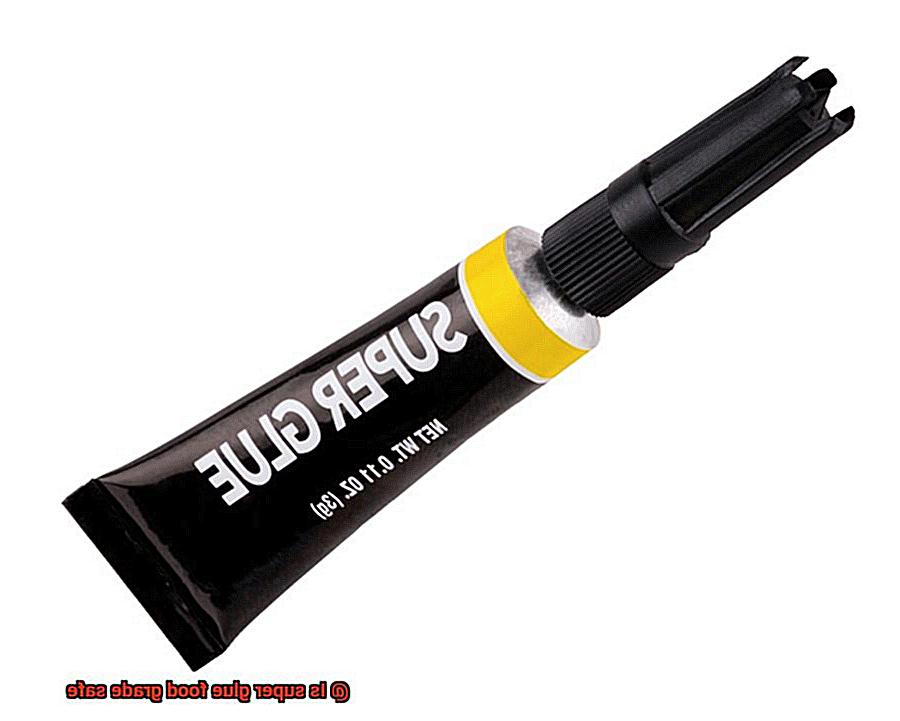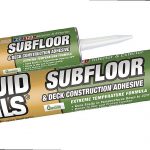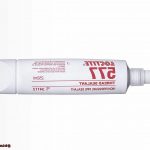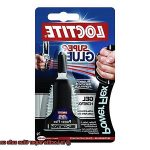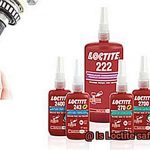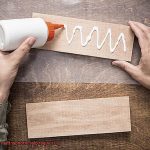Ever found yourself in a sticky situation, wondering if super glue is safe to use as a food-grade adhesive? It’s a question that has sparked debates and left DIY enthusiasts and culinary aficionados scratching their heads. While super glue is known for its incredible strength when it comes to bonding materials, its suitability for food-related applications remains an ongoing debate.
In this blog post, we’ll dive deep into this adhesive conundrum and explore whether super glue can be trusted for food-grade usage. By uncovering expert insights, industry regulations, and debunking common misconceptions, we aim to provide you with a clear perspective on the safety of using super glue around food. So, let’s satisfy your curiosity and separate fact from fiction when it comes to the food safety of super glue.
The Chemical Composition of Super Glue
Contents
- 1 The Chemical Composition of Super Glue
- 2 Potential Risks of Using Super Glue Near or on Food
- 3 Is Super Glue Safe for Food-Related Applications?
- 4 Alternatives to Using Super Glue in Food Preparation Areas
- 5 Health Risks Associated with Ingesting Super Glue
- 6 How to Keep Super Glue Away from Food Preparation Areas
- 7 The Benefits of Using Food-Safe Adhesives and Glues
- 8 Common Types of Food-Safe Adhesives and Glues
- 9 Conclusion
Super glue, also known as cyanoacrylate adhesive, is an incredible chemical compound that has revolutionized the world of adhesives. In this blog post, we will delve deep into the fascinating and varied chemical composition of super glue. From its core ingredient to the added additives that enhance its performance, we will explore how super glue forms a bond so strong that it can withstand tremendous forces. So, whether you’re a DIY enthusiast, a crafter, or simply curious about the science behind this powerful adhesive, prepare to be amazed by the secrets of super glue.
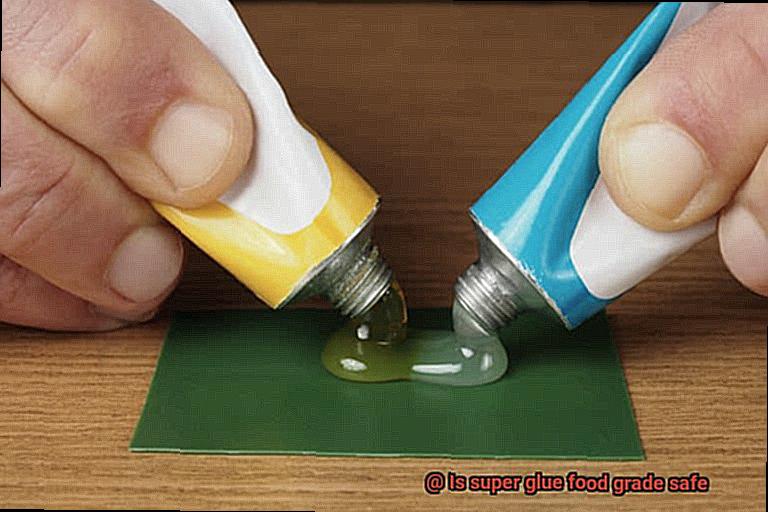
The Power of Cyanoacrylates:
At the heart of super glue lies a family of adhesives known as cyanoacrylates. Derived from acrylic resins, cyanoacrylates possess an extraordinary ability to bond materials together. Once exposed to even minute traces of moisture, these compounds undergo rapid polymerization, forming robust bonds with surfaces. This unique characteristic makes super glue an ideal adhesive for a wide range of materials, including plastics, metals, ceramics, and even rubber.
Key Ingredient: Ethyl 2-Cyanoacrylate:
The primary component of super glue is ethyl 2-cyanoacrylate. This clear liquid with its sharp odor acts as a monomer, consisting of individual molecules capable of joining together to form long chains during the polymerization process. Ethyl 2-cyanoacrylate is responsible for the quick-setting nature of super glue and its exceptional ability to create durable bonds.
Additives for Enhanced Performance:
To optimize the stability and usability of super glue, small amounts of stabilizers and accelerators are often incorporated into the formulation. Stabilizers prevent premature curing of the adhesive, ensuring it remains effective for a longer period. Accelerators, on the other hand, speed up the bonding process, reducing the time required for the adhesive to set and cure. By carefully selecting and adding these compounds, super glue manufacturers can enhance the overall performance and reliability of their products.
Safety Considerations:
While super glue offers unparalleled strength and versatility, it is essential to use it responsibly and understand its limitations. It is crucial to note that super glue is not intended for food-grade use and should never be ingested or come into direct contact with food. Furthermore, proper handling of super glue is essential to avoid skin contact, as its polymerization reaction can cause irritation or even bond skin if not used with caution. Additionally, adequate ventilation is necessary when using super glue to ensure a safe working environment.
Potential Risks of Using Super Glue Near or on Food
In this blog post, we will uncover the dangers lurking beneath the surface of using super glue in food-related applications. So, grab a snack (not near the super glue.) and let’s delve into the potential risks together.
Super Glue and Food Don’t Mix:
Super glue is not meant to come into contact with food. Its chemical composition includes adhesives that are unsafe for consumption. The mere thought of these chemicals mingling with your meals should be enough to make you cringe.
Lack of Regulation:
Unlike food-grade adhesives, super glue is not regulated or approved by any food safety agencies for use on or around food. This absence of guidelines and standards means you’re venturing into uncharted territory when using it near your beloved dishes.
Contamination Concerns:
Even the tiniest residue of super glue can contaminate your food if it comes into contact with it. This contamination can pose serious risks, especially if consumed regularly. So, exercise extreme caution when using super glue near cutting boards, utensils, or containers that come into contact with your meals.
Potential Health Effects:
Ingesting super glue can wreak havoc on your gastrointestinal tract, causing irritation and damage. Symptoms such as nausea, vomiting, abdominal pain, and difficulty swallowing may make an unwelcome appearance. It’s clear that accidental ingestion is no laughing matter.
Volatile Organic Compounds (VOCs):
Super glue may contain solvents or VOCs that evaporate and mix with the surrounding air. Inhaling these fumes can be harmful, particularly in enclosed spaces or areas with poor ventilation. So, make sure you have proper airflow when working with super glue to protect your respiratory health.
Safety First:
Always read and follow the instructions provided by the manufacturer when using any adhesive product, including super glue. These instructions typically include warnings about avoiding contact with skin, eyes, and ingestion. Don’t underestimate the importance of these guidelines in safeguarding your well-being.
Food-Grade Adhesives:
To ensure food safety, it’s best to opt for adhesives specifically designed for food-related applications. These adhesives are formulated to be safe for direct contact with food and are regulated by relevant authorities. When it comes to your meals, it’s better to be overly cautious than face unnecessary risks.
Is Super Glue Safe for Food-Related Applications?
In the fast-paced world of the kitchen, accidents happen, and broken items are a common occurrence. With super glue’s reputation for providing quick fixes, it may seem like the perfect solution for repairing food-related items. However, before reaching for that trusty tube of adhesive, it’s crucial to understand the potential risks involved. In this article, we will delve into why using super glue for food-related applications is not safe and why opting for food-grade adhesives is a wiser choice.
Chemical Composition:
Super glue, scientifically known as cyanoacrylate adhesive, should never be ingested. It contains chemicals that can be harmful if consumed. The main ingredient in super glue, ethyl cyanoacrylate, has the potential to release toxic fumes when exposed to moisture or acidic foods.
Chemical Migration:
Even if the super glue is completely dry and cured, there is still a risk of chemical migration from the adhesive into the food. This risk is heightened when the food is acidic or hot. Consuming chemicals from the adhesive can pose serious health risks.
Physical Hazards:
Super glue can create physical hazards if it were to detach and mix with the food. Small plastic particles or sharp edges from the adhesive could become choking hazards or cause injuries if ingested.
Lack of Regulation:
The Food and Drug Administration (FDA) does not specifically approve or regulate super glue for food-related applications. Consequently, there are no official guidelines or standards for its use in this context. FDA regulations concerning materials that come into contact with food generally do not include super glue as an approved material.
Alternatives:
To ensure safety in food-related applications, it is best to use adhesives specifically labeled as safe for food contact or approved by regulatory agencies. Opt for food-grade adhesives, such as epoxy adhesives, silicone sealants, or certain types of polyurethane adhesives, which have been tested and deemed safe for direct or indirect contact with food.
Alternatives to Using Super Glue in Food Preparation Areas
In the fast-paced environment of a bustling kitchen, accidents are bound to happen. From broken plates to chipped bowls, these mishaps can throw even the most experienced chef off balance. While reaching for a tube of super glue might seem like a quick fix, it’s essential to remember that super glue is not safe for use in food preparation areas.
This article explores a range of alternative options specifically designed for food-related applications. So get ready to discover safer alternatives that will keep your kitchen running smoothly and your culinary creations free from potential hazards.
Food-Grade Adhesive:
Say goodbye to super glue and hello to food-grade adhesive. These specialized adhesives are formulated with non-toxic ingredients and have received approval from regulatory bodies like the FDA. Designed for surfaces that come into contact with food, food-grade adhesives do not release harmful chemicals when exposed to moisture or heat.
Stainless Steel Welding or Soldering:
When it comes to repairing metal items, stainless steel welding or soldering is a reliable alternative. This method creates a strong bond that can withstand high temperatures and is resistant to corrosion, making it ideal for food preparation areas. However, it’s important to note that welding or soldering should only be performed by trained professionals to ensure safety and effectiveness.
Mechanical Methods:
For commercial kitchens or industrial settings requiring frequent cleaning and maintenance, mechanical methods such as screws, bolts, or clamps offer an excellent solution. These methods provide a secure yet removable option for fixing objects without the need for adhesives, ensuring both convenience and safety.
Health Risks Associated with Ingesting Super Glue
Accidentally breaking something and reaching for super glue to fix it is a common scenario. However, ingesting super glue can have dire consequences for our health. In this article, we will explore the dangers of consuming this adhesive and why it requires careful handling.
The Sticky Truth:
Super glue contains toxic chemicals called cyanoacrylates that wreak havoc on our bodies, particularly our gastrointestinal tract. Picture the adhesive sticking to the lining of your mouth, throat, or esophagus – not a pretty sight. Symptoms can range from pain and discomfort to difficulty swallowing and obstruction.
Burn Baby, Burn:
Ingesting super glue can also lead to chemical burns. When the adhesive reacts with moisture in our bodies, it releases heat, causing burns to surrounding tissues. Ouch.
Blocked Airways:
A large amount of super glue inhaled or swallowed can create a sticky situation – a blockage in your respiratory system. Breathing difficulties are no joke, and accidental ingestion of super glue puts you at risk.
Systemic Effects:
Super glue doesn’t restrict its trouble locally; it can have systemic effects too. The adhesive’s chemicals can be absorbed into your bloodstream and spread throughout your body, potentially causing toxicity in various organs. That’s definitely not something you want happening inside you.
Protect Our Little Ones:
Children are particularly vulnerable to accidental ingestion of super glue due to their curiosity and penchant for putting objects in their mouths. It’s crucial to keep super glue and other harmful substances out of their reach.
What to Do if Accidental Ingestion Occurs:
If someone accidentally ingests super glue, immediate medical attention is a must. Inducing vomiting without professional guidance can worsen the situation. Remember, it’s better to be safe than sorry.
Prevention is Key:
To prevent accidental ingestion, follow product instructions and store super glue securely away from food and beverages. Let’s keep our kitchen mishaps limited to burnt toast.
How to Keep Super Glue Away from Food Preparation Areas
When it comes to cooking up mouthwatering meals for your loved ones, food safety should always be a top priority. That’s why it’s crucial to keep super glue far away from your kitchen and food preparation areas. In this blog post, we will explore simple and effective steps you can take to ensure the safety of your food and prevent any contamination.
Store super glue in a separate area:
To avoid any accidental mix-ups, it’s important to store super glue in a designated space away from your kitchen or food storage areas. Picture a cozy garage or a functional utility room as the perfect spot for its safekeeping. Make sure to clearly label the container, ensuring there is no confusion with items used in the kitchen.
Create a physical barrier:
If you need to use super glue for repairs or projects near your kitchen, it’s essential to create a physical barrier between the glue and the food preparation area. Imagine a sturdy plastic sheet or imagine using a portable divider to separate the two spaces. This way, you can prevent any accidental contact between the glue and your tasty creations.
Clean surfaces and utensils:
Before using any surfaces or utensils for food preparation, make sure to clean them thoroughly if they’ve come into contact with super glue. Envision warm soapy water and vigorous scrubbing to remove any residue or adhesive particles. This includes countertops, cutting boards, and knives. By doing this, you can ensure that no traces of super glue remain that could potentially contaminate your food.
Educate everyone in your household:
It’s essential to educate everyone in your household about the potential dangers of using super glue in or near the kitchen. Encourage proper handling and storage practices to minimize the risk of accidental contamination. By raising awareness about the importance of keeping super glue away from food preparation areas, you can create a safer environment for everyone.
Act quickly in case of spills:
If you accidentally spill super glue in your kitchen, it’s crucial to act quickly. Imagine removing any affected food items from the area and disposing of them properly. Visualize ventilating the space by opening windows or using fans to dissipate any fumes. Clean up the spill immediately using appropriate cleaning agents recommended for removing super glue.
The Benefits of Using Food-Safe Adhesives and Glues
The food industry places a high emphasis on safety and quality to protect consumers and uphold regulatory standards. While many aspects of food safety are well-known, the importance of using food-safe adhesives and glues in various applications is often overlooked. In this article, we will explore the numerous benefits of utilizing these specialized products, highlighting their significance in maintaining food integrity, complying with regulations, and promoting sustainability.
Safety without Compromise:
Food-safe adhesives and glues are specifically formulated to exclude harmful substances or chemicals that could leach into the food. By utilizing these products, businesses can provide a strong and reliable bond while ensuring the utmost safety for consumers. This is particularly crucial in food packaging, where adhesives seal containers, preserving freshness and product integrity.
Withstanding Harsh Environments:
Moisture and temperature fluctuations pose common challenges in food processing and storage. Food-safe adhesives and glues offer excellent resistance to these conditions, enabling them to withstand high temperatures without melting or releasing toxic fumes. They prove ideal for sealing oven-safe containers or bonding components in commercial kitchen equipment.
Versatile Applications:
Food-safe adhesives and glues can be employed on various materials commonly found in the food industry. From plastics to metals, ceramics, and glass, they are suitable for repairing utensils, bonding labels or stickers onto packaging, or assembling food processing machinery. Their versatility makes them an indispensable tool for any food-related application.
Regulatory Compliance:
Strict adherence to regulatory standards set by organizations like the FDA is paramount for businesses operating in the food industry. Food-safe adhesives and glues comply with these standards, ensuring safety, hygiene, and compatibility with different types of food. Utilizing these products helps businesses maintain compliance, avoiding legal issues and product recalls.
Enhancing Product Quality:
Food-safe adhesives and glues contribute to overall product quality by being resistant to the chemicals found in food.
This prevents degradation or contamination of the adhesive itself, ensuring a strong and durable bond even when exposed to oils, acids, or other substances commonly found in food. By using food-safe adhesives, businesses can maintain the highest quality standards for their products.
Environmental Benefits:
Many food-safe adhesives are water-based or solvent-free, reducing the emission of volatile organic compounds (VOCs) that can harm the environment. Additionally, some manufacturers offer eco-friendly options made from renewable resources or recyclable materials.
Choosing these environmentally friendly adhesives demonstrates a commitment to sustainability and responsible business practices.
Common Types of Food-Safe Adhesives and Glues
In the quest for food safety, even the smallest details matter. From packaging to processing, every aspect of food production must adhere to strict safety standards. Yet, one often overlooked element is the adhesive used in food-related applications.
In this article, we will explore the common types of food-safe adhesives and glues used in the food industry, highlighting their importance in preserving the integrity and safety of our food.
Epoxy Resin:
One staple adhesive in food-safe applications is epoxy resin. This versatile adhesive offers a potent bond that resists moisture and chemicals. Its reliability makes it a popular choice for sealing cans and bottles in food packaging.
With its rapid curing process, epoxy resin ensures that our food remains securely sealed, safeguarding it against contamination during transportation and storage.
Cyanoacrylate Glue:
Another commonly used adhesive in the food industry is cyanoacrylate glue, fondly known as super glue. While regular super glue is unfit for direct contact with food, specially formulated food-safe variations are readily available.
These fast-drying glues serve as reliable solutions for bonding and quick repairs in commercial kitchens and food processing facilities. Their effectiveness in sealing bags and containers helps maintain freshness and prevent spoilage.
Silicone Adhesives:
Silicone adhesives are renowned for their remarkable resistance to temperature extremes, making them invaluable in food processing equipment.
These adhesives excel at sealing gaskets and joints, ensuring zero entry points for contaminants during production. Their flexibility and durability suit applications that require both strength and adaptability.
Polyurethane Adhesives:
For robust bonding capabilities combined with moisture resistance, polyurethane adhesives are an excellent choice in food packaging applications.
These versatile adhesives provide exceptional adhesion to various substrates, withstanding temperature fluctuations throughout the food production process.
By preventing leaks and maintaining food freshness, polyurethane adhesives play a crucial role in preserving the quality of our food.
Choosing the Right Adhesive:
It is vital to note that not all adhesives are safe for direct contact with food. Some may contain harmful chemicals or toxins that can leach into the food, posing serious health risks. To ensure food safety, look for certifications or regulatory approvals, such as FDA approval or compliance with relevant industry standards when selecting a food-safe adhesive.
Consulting adhesive manufacturers or experts can provide valuable guidance in determining the most suitable adhesive for specific food-related applications.
23hOMH8hskk” >
Conclusion
In conclusion, it is crucial to understand that super glue is not considered food grade safe.
While it may seem tempting to use it in food-related situations due to its strong bonding properties, it is important to prioritize safety and opt for adhesives specifically designed for food contact. Super glue contains chemicals that can be harmful if ingested or come into direct contact with food.
Therefore, it is highly recommended to use adhesive products that are explicitly labeled as food grade safe when working with materials that will come in contact with food.

